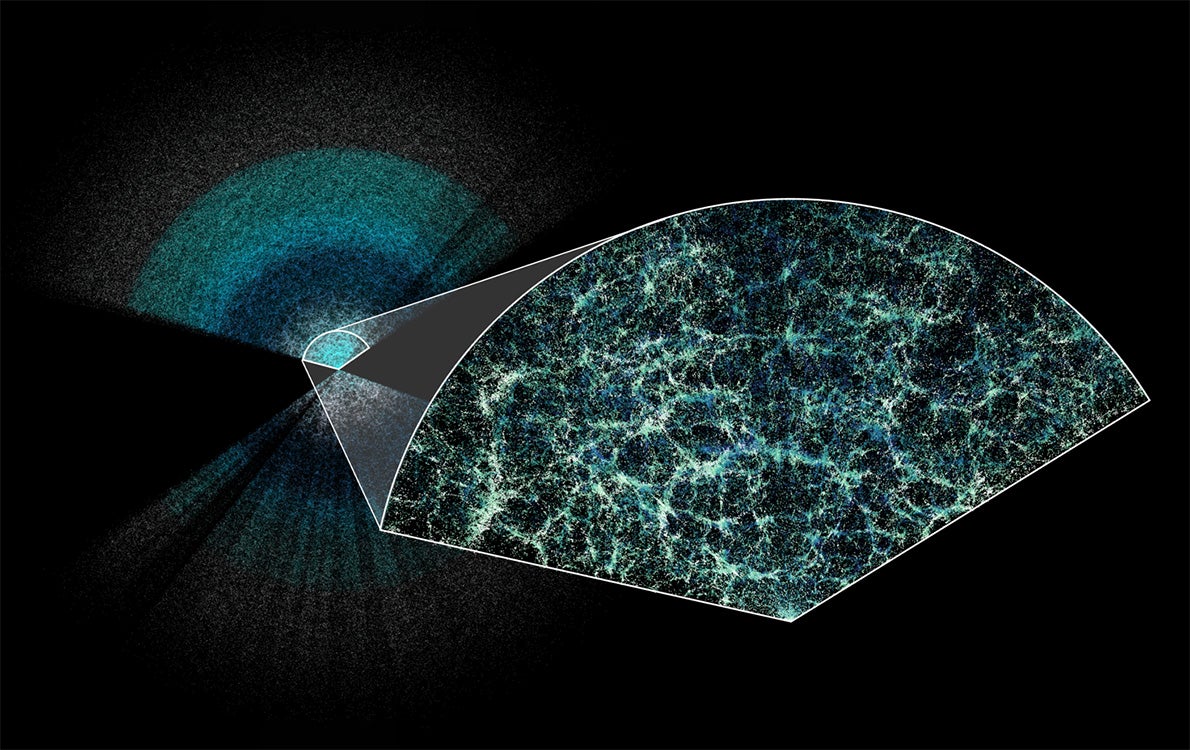Most detailed map of the universe raises questions about its fate
Mysterious force appears to change over time, breakthrough new data suggests

Dark energy may be “evolving”, scientists have said after making the most detailed 3D map of our universe.
The new data confirms that the universe is speeding up at an increasingly fast rate, scientists say. But it suggests that the dark energy that drives that process has been changing over time, contradicting our current understanding of the cosmos.
The map is the result of work by the Dark Energy Spectroscopic Instrument, which can see light that began its journey to Earth 11 billion years ago and allowed scientists to create a map comprising more than six million galaxies. That allows scientists to see the universe as it was in its relative youth.
Scientists hope to use that vast data to map the effects of dark energy, giving more understanding of the mysterious force that is thought to be making the universe expand more quickly.
The study is the first time that researchers have studied the early universe with a precision better than 1 per cent, allowing our best ever picture of the evolution of the cosmos.
For the most part, that data agrees with our best model of the cosmos. But researchers said there were “potentially interesting differences that could indicate that dark energy is evolving over time”, and that more work could reveal yet more about the cosmos.
The research has been produced by the Dark Energy Spectroscopic Instrument, a telescope made up of 5,000 tiny robots that is peering deep into distant space.
Our best model for the universe is known as Lambda CDM, so named because it combines cold dark matter, which is known as CDSM, with dark energy, known as Lambda. Those two together shape how the universe expands: matter slows it down, but dark energy speeds it up.
Researchers are still unclear about how exactly those two interact, and how they alter our universe’s evolution. But the findings from the first year of the DESI project mostly indicate that it is accurate – with some intriguing differences.
DESI’s survey will last five years, and researchers say that could eventually show that the differences are not actually as significant as they appear. But it might also suggest that we need to update our model of the universe, researchers say.
“Our results show some interesting deviations from the standard model of the universe that could indicate that dark energy is evolving over time,” said Mustapha Ishak-Boushaki, a professor of physics at the University of Texas at Dallas and member of the collaboration. “The more data we collect, the better equipped we will be to determine whether this finding holds.
“With more data, we might identify different explanations for the result we observe or confirm it. If it persists, such a result will shed some light on what is causing cosmic acceleration and provide a huge step in understanding the evolution of our universe.”
Scientists have published a host of papers from the first year of DESI data on arXiv, the open-access research website. They are also presenting their work at the American Physical Society meeting in the US and the Rencontres de Moriond, in Italy.
Join our commenting forum
Join thought-provoking conversations, follow other Independent readers and see their replies
Comments
Bookmark popover
Removed from bookmarks